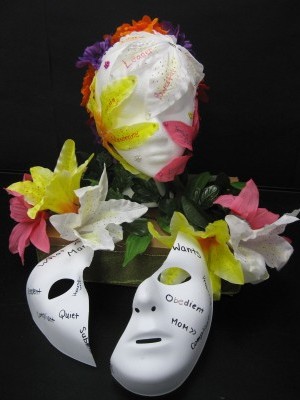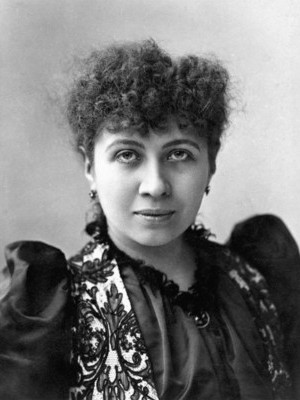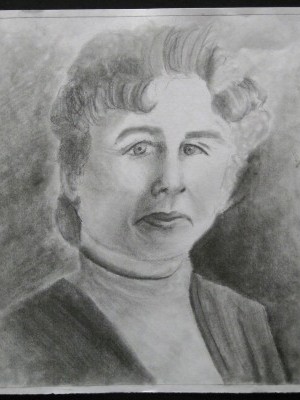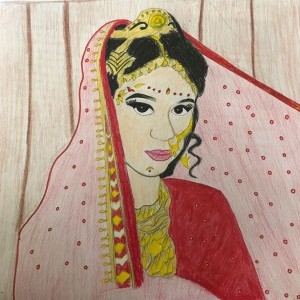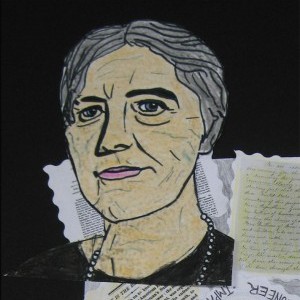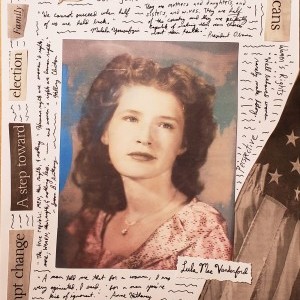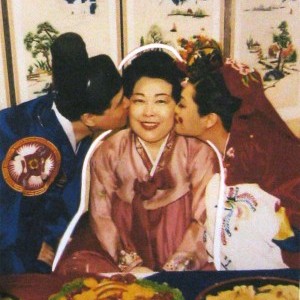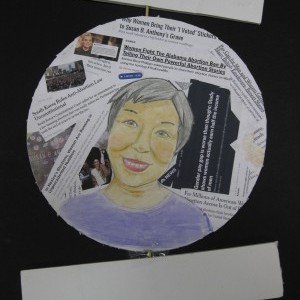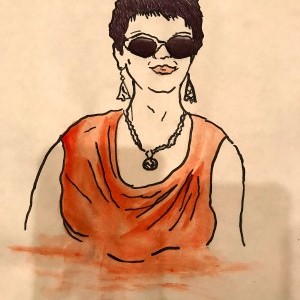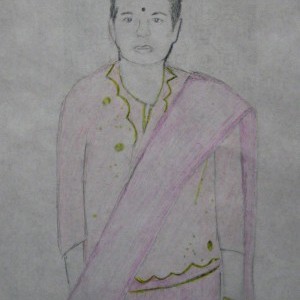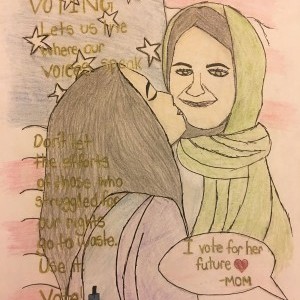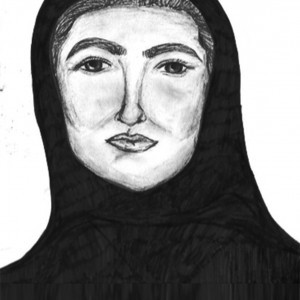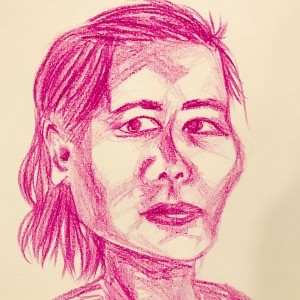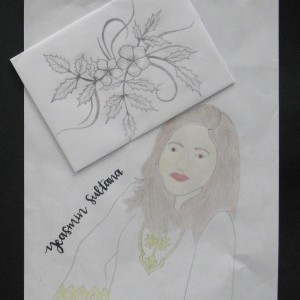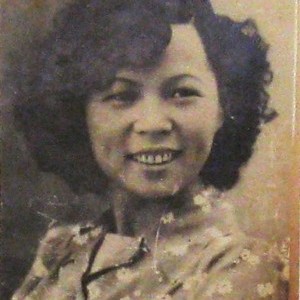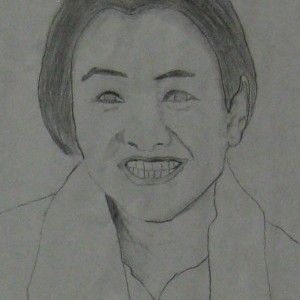Carlos Calderon Adora Barikdar Cariece Forde , Dinesh Mulani & Caitlin Bell
Townsend Harris High School | Flushing, NY | 11th Grade
Inspirational Family Member
My Mother
My mother is a very prominent figure in my life, for many, many reasons. She has had to overcome a lot, and she has been a trailblazer in my family, as she was one of the first women in my family who was granted the right to vote in the United States. Her experience is important to my family, and it can shed light onto what it is like to be an immigrant woman in the U.S.
My mom, Dawn Mclean-Bell, was born and raised in the sunny tropical island of Jamaica, and specifically in the parish of Manchester. Growing up, she and her siblings, as well as her mom and dad, didn’t have a lot of money, nor were they given extraordinary opportunities due to their financial situation. Thus, when my mom got older, she decided to leave her small island, which was all she knew, for places where she could be given more opportunities to do the things that she loved. Eventually, she found herself in the United States, with those new opportunities that she wanted.
Although she had been working in the United States for decades, my mom recently voted for the first time in her entire life, due to the fact that she just gained her citizen status. When she did, she remembered feeling powerful, as she believed that in a way, she would be changing the world. The first election she voted in was the 2016 Democratic Primary election, and she was elated to realize the impact that filling out a ballot would have on her future. The challenges that she faced included defective voting machines, which created long lines and deterred people from wanting to vote, and this was not just a challenge at her voting station, but was and continues to be a challenge in minority neighborhoods.
The experiences that I will have with voting will be in some ways different from the ones that my mom has had, while in other ways similar to her experiences. Firstly, I was born a citizen, so as soon as I turn 18, I will be granted the right to vote. However, as a minority, I may face unfair voting conditions similar to the ones my mom has had to face. All in all, regardless of the hardships that one may have to face on their journey to vote, it is undeniably important to put your name on a ballot and have a say in your future. As women, my mother and I are both very grateful for the chances that we have been given to go to the polls and make a mark on society.
Historical Figure I Admire
Caroline Rémy de Guebhard
Caroline Rémy de Guebhard was a journalist writing pieces in the 1890s to support the cause of women’s rights. Caroline lived in France her whole life being born on April 27th, 1885 and dying on April 24th, 1929. Caroline usually went under her pen name Séverine in order to write for her newspaper. Séverine became the first French woman to direct an important newspaper at the time which was Cri du Peuple. Séverine wasn’t writing papers supporting the women’s movement at first. She would write in the papers about the news in her environment. It wasn’t until the Dreyfus Affair where Séverine wrote about women’s emancipation and the social injustices involved with the Affair. Afterwards, Séverine proceeded to join the women’s fight for the right to vote. From 1912 to 1914, she became a leader in the fight for that right. Furthermore, she initiated the Condorcet demonstration in Paris on July 5, 1914, when some 6,000 women marched for the vote, the largest such event in France to date. Caroline Rémy de Guebhard became one of the most known women in France for leading the movement for the right to vote.
Women like Séverine had to work jobs and take care of the home as well as the children while the husband of the family would go to work to make a significantly higher wage than women. French women in this time were pushed to manage all of these responsibilities while still being looked at like a second-class citizen in society. Working women usually worked out of home but were still working for pay for chores inside a home such as seamstresses, embroiderers or laundry maids. These occupations allowed them to remain in the home while also providing a supplemental income. Marriages that occurred in France were merely seen as a necessity as the man needed a woman to help take care of a home and deal with certain responsibilities. Men and women would normally marry people from each other’s socio-economic class and region. Normally people would believe that people fall in love before marriage but in France, people would sometimes develop love for their spouse after the marriage. This is due to the fact that people rushed into marriages in the nineteenth century. This period in history shows how women were affected especially in France. Séverine was one of these women fighting to show what they can accomplish and showing society that they are not inferior but equal to men and deserve to have the same rights as them.
One of the biggest impacts that Séverine has had was her writing for the paper La Fronde. This newspaper was written and run by only women. This newspaper was one of the major accomplishments for the women’s movement because of the coverage of what was considered male professions such as engineering, law or journalism. Séverine’s writing was very vital to the newspaper because of how it challenged philosopher Jean-Jacques Rousseau’s view on the role of women which was to stay at home and be responsible for all the chores in the home. Caroline chose an unconventional marriage and domestic life and a modern professional life. She wrote about topics that were considered to be topics only men should write about, such as politics and human rights.
SOURCES +
What the Project Means to Me
Reflecting on suffragist Rose Scott and my mother —
There is a major connection found between my own grandmother and Rose Scott: they both want to have women and all people to be educated to make informed decisions. Rose educated citizens in Wales through the Womanhood Suffrage League, League for Political Education, and the Women’s Political and Educational League. Meanwhile, my grandmother taught her children this lesson through education in public schools. There is major value in each woman’s story as they come from different parts of the world yet share similar aspirations.
Now, the most popular questions asked by people across the globe in democratic nations is “why vote?” The simple answer is to use our freedom of choice. The more complex answer is to get a holistic view on what the people want. The important aspect of voting is definitely to be informed about the rules, laws, and policies of candidates. This was a lesson learned by my grandmother as she decided to not vote at all rather than to vote with no knowledge. The cliche saying how “every vote matters” is more accurate as the level of elections gets lower. One vote in a presidential election will not have as much of an impact as a state election’s because there are less votes so each one has more weight to it. Most people have no clue about their district and local elections, however, some knowledge about the candidates can go a long way in having people elected who have the best interest of the people at heart. Voting is a major right that citizens have gained over time and it is up to the people to vote based on informed and unbiased decisions.
Explore the Archive
More From This Class
Click on the thumbnails below to view each student's work.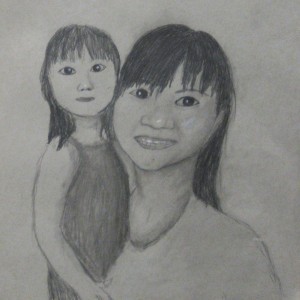
Vivian Chen, Josephine Chen, Ivan Chan, Zafirah Rahman, Neeharika Reddy, Daniel Shi, Daniel Shi, Jacqueline Cho & Osiris Guerrero
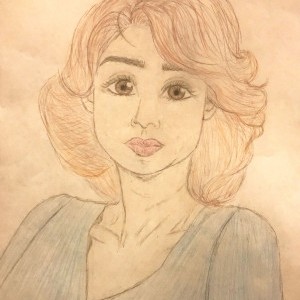
Jennifer Moran, Adebola Ademola, Julia Hong, Vicki Kanellopoulos, Inga Kulma, Maimunah Virk, Deborah Molina & Kailey Van
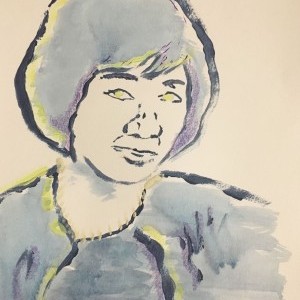
Kristina Chang, Sarah Chowdhury, Bethany Leung, Letian Fang, Cathy Choo, Kelly Chan, Emily Tan, Adamary Felipe & Kenney Son

